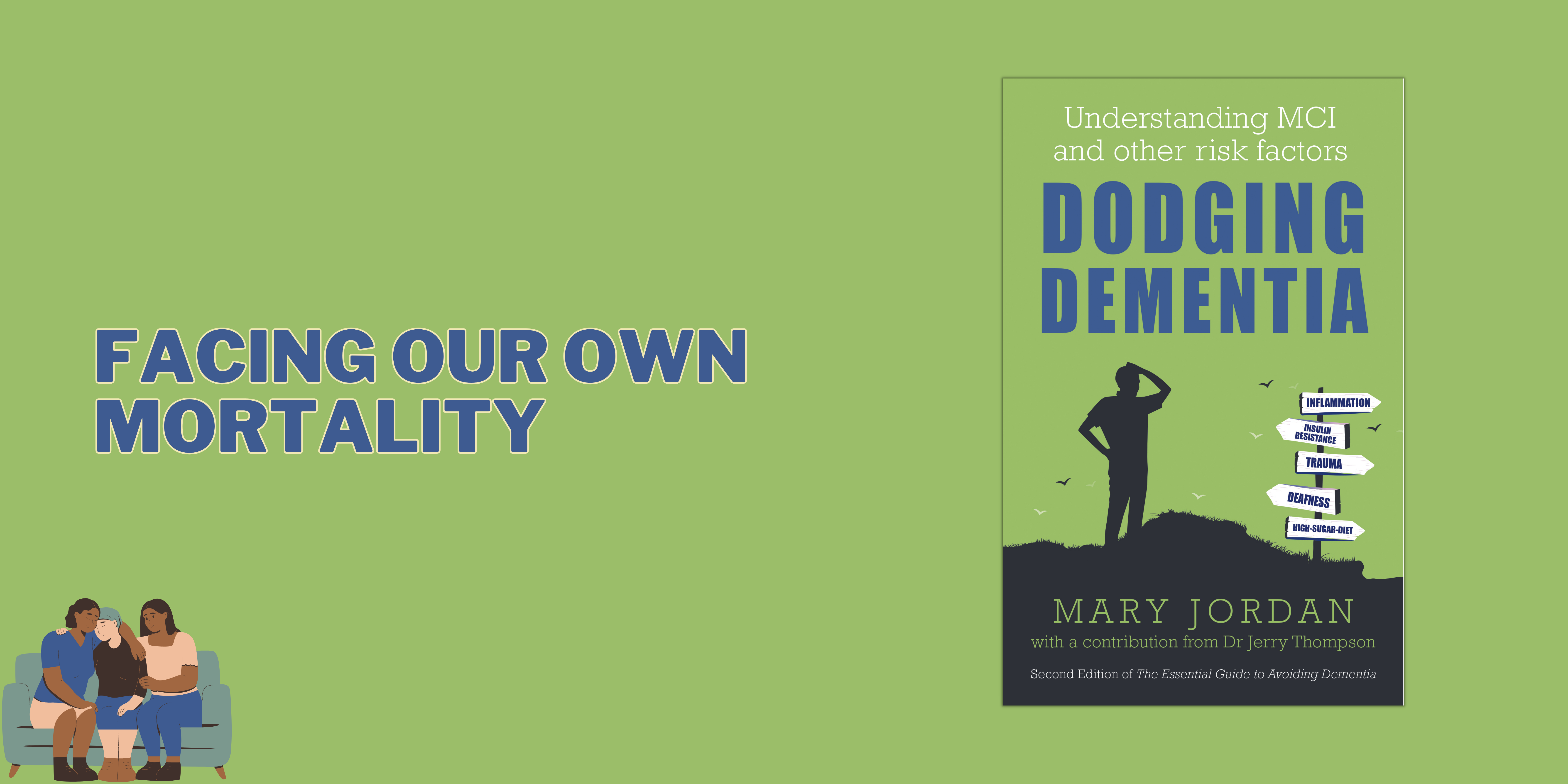
Author of upcoming book ‘Dodging Dementia: Understanding MCI and other risk factors: Second edition of The Essential Guide to Avoiding Dementia’ Mary Jordan has written the following blog which provides insightful support on the difficult conversations surrounding end of life. Her newest book will be available on Hammersmith Health Books and other online vendors in September!
A diagnosis of dementia is an opportunity to come face to face with our own mortality – and that of those we love. It may not be an opportunity everyone wants to embrace but in some ways this diagnosis gives us all a chance to accept our mortality and, if desired, to plan for how we would like our own end of life to be. Carers have told me that although they found the subject difficult to face, they have often been strengthened by the experience of considering their own end and have achieved some measure of peace from doing so.
Understanding the end-of-life wishes of someone with dementia
Establishing end-of-life wishes can be a very important part of caring. Even if discussing these matters after diagnosis is difficult, carers can at least be sure that they are doing an important and loving thing. It can be very difficult for people with dementia to make their wishes known. An important factor in dementia is the loss of the ability to foresee or understand the consequences of one’s actions or even to think clearly about the future. People with dementia have a tendency to exist ‘in the now’ and may find it very difficult to engage in discussion about a theoretical future. This means that effort to establish feelings about the end of life may have to be inferred.
It is important not to transfer our own feelings onto the person we are caring for. Just because we may feel that we would ‘rather be dead than demented’, this may not be how a person with dementia feels. We should listen to the way someone talks rather than trying to use direct questions. People with dementia may use expressions such as: ‘It’s awful’ or ‘There is nothing left’ or ‘I’m angry’ when asked how they are and this can be indicative. Others will answer ‘I’m fine’ or ‘I feel Ok’ or ‘Very well’ to the same question.
Reality vs. our preferences – the value of making a plan
Unfortunately, the final days of life often come in an unexpected manner. We would all like to imagine a final peaceful ‘drawing to a close’ of life, perhaps surrounded by loved ones, well cared for and pain free. The actualities can be quite different. Perhaps a fall or an infection is followed by an emergency admission to hospital and a fast deterioration. Sometimes residential care homes are so worried about possible accusations of neglect or mismanagement that residents at the end of their life are admitted to hospital instead of being cared for in the surroundings they are used to. There may not be time to consider wishes and advanced plans in these circumstances but remember that where these have been discussed and recorded it is more likely that they will be adhered to. Hospitals are generally bad places to die (they are designed to care for and cure) and privacy and peace and calm are rarely obtained there. Nevertheless, my experience is that families who have discussed end of life and who have planned and considered ahead often feel more comfortable about events leading up to death even if things have not turned out the way they planned.
